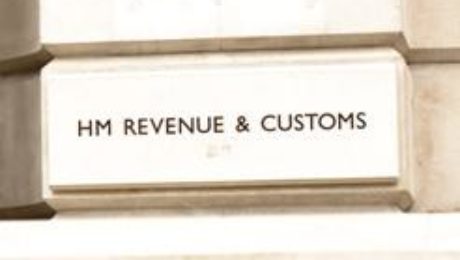The launch of a landlord database outlined in the Renters Reform Bill will give HMRC unparalleled access to information to launch tax investigations
The database could ‘provide HMRC with a gold mine of information with which to pursue landlords for unpaid tax’, warned BDO.
The Renters (Reform) Bill introduced into Parliament this week, proposes a private rented sector database with details of landlords and their properties let under residential tenancies.
The Bill does not clearly set out that HMRC will get full access to all information submitted as part of the registration process, unlike for the equivalent provisions for the Register of Overseas Entities. However, it is reasonable to assume that the tax authority will make use of the publicly accessible data for compliance activities.
HMRC is keen to ensure landlords declare their rental profits and gains on sale so they pay the tax they owe. It encourages those who have made mistakes to voluntarily correct their position by using the Let Property Campaign, part of HMRC’s digital disclosure service.
Further property data will also become available after the Land Registry implements the new information requirements in the Levelling-up and Regeneration Bill, which are also aimed at extending transparency of property ownership and transactions.
HMRC will combine any new data from the landlord database with information it can already access such as Land Registry records, the Register of Overseas Entities owning UK property and the data in HMRC’s own Connect database, which reportedly holds over 55 billion pieces of data.
Data analysis should help HMRC identify cases for investigation, with a view to charging tax, late payment interest and tax-geared penalties.
Dawn Register, head of tax dispute resolution at BDO said: ‘HMRC already holds significant information on taxpayers’ financial affairs. The introduction of a new private rented sector database will leave few places to hide for landlords who don’t comply.
‘Any landlords who don’t currently pay the right amount of tax would be well advised to bring their UK tax affairs up to date before the register is introduced.
‘In addition to providing peace of mind, making an unprompted disclosure should lead to lower tax-geared penalties for errors, compared to rectifying mistakes after HMRC gets in contact.
‘It will also help to mitigate late payment interest – which is currently at a 14-year high of 6.75% per annum and due to rise to 7% from 31 May.’
An overhaul of EU rules will affect Airbnb landlords and agents for villa owners across Europe as VAT will be chargeable on all rentals
The EU’s VAT in the Digital Age programme will have a profound impact on the travel and hospitality sectors, especially for platform operators who host rental apps ranging from accommodation providers like Airbnb and Booking.com, to taxi hailing apps including Uber, Freenow and Gett.
Any owners of overseas property who rent out their foreign houses and apartments on third party platforms from 2025 will be caught by the rules, regardless of where they are resident. In future, VAT charges will be passed on to owners by the platform operators so an average 20% VAT should be factored into running costs of rentals.
EU estimates indicates that up to 70% of accommodation suppliers using a platform are not registered for VAT. This means operators will have to collect the VAT registration details of all registered providers and notify authorities of VAT numbers where applicable. In addition, they will also have to notify details of all non-registered owners with tax authorities in individual member states.
‘Forthcoming EU legislation means intermediaries and agents operating platforms used to book accommodation or passenger transport in the EU will need to pay VAT on the underlying supplies,’ said Sue Rathmell, partner and indirect tax specialist at MHA. ‘The EU Commission hopes to bring these changes into force on 1 January 2025.
‘These changes won’t just apply to the likes of Airbnb, booking.com and Uber.
‘Businesses that act as agents for villa owners in Spain and operate an online booking system or airport transfer platforms like hoppa.com will also be caught in the net.’
The EU plans to introduce the rules to create more tax equality as hotels and standard taxi services are all charged VAT on sales, while due to the complexity of VAT registration for individual providers of accommodation and cab services there is normally no tax charge.
Going forward, the platform operator will be responsible for paying the VAT on behalf of third party providers as they are the underlying supplier.
This means that if the accommodation owner or transport supplier is not VAT registered in the country where the property is, or where the transport is provided, then the platform must pay the VAT on the supply direct to the tax authorities.
It is also important to note that simply not being registered for VAT will not give the provider a free pass.
‘If the underlying property owner or transport operator is VAT registered, then the intermediary is not off the hook,’ said Rathmell. ‘They must still provide the supplier’s information and details of the supplies to the tax authorities.
‘These changes will create extra work for platform operators, but it is hard to argue with them in principle as they are all about creating a level playing field. The EU Commission thinks the status quo is unfair on businesses like hotels or private taxi firms.
‘Companies like Airbnb compete directly with the hotel sector and Uber competes directly with private taxi firms. In the case of Airbnb and Uber VAT is often not collected on the underlying rentals and transport because the end suppliers aren’t registered for VAT.’
Now that the UK has left the EU, the rules will not be introduced here but it is likely that the Chancellor will look at the EU developments with interest, if only to create more tax parity.
‘Although the UK is no longer part of the EU where the underlying accommodation or transport is in the EU, these rules will apply. I also expect the UK to introduce its own version of this legislation in due course.”
A dentist has lost a First Tier Tribunal (FTT) appeal against closure notices issued by HMRC which rejected claims for tax relief for payments to a remuneration trust
The appellant, Mark Northwood, appealed to the FTT against closure notices issued by HMRC on 1 December 2016 amending his income tax returns, for the tax years ending 5 April between 2010-2013.
The amendments resulted in additional income tax and national insurance contributions (NICs) totalling £999,755.81.
Northwood argued that making contributions to a remuneration trust had the effect of reducing the taxable profits from his self-employed dentistry business and as a result his liability for income tax and NICs.
However, HMRC disagreed and amended Northwood’s tax returns to remove the deduction. Northwood appealed to the FTT against HMRC’s amendments.
Northwood qualified as a dental surgeon in 1988 and has conducted his orthodontist practice for some years as a sole trader. In 2009, he entered into discussions with Foy Wealth Ltd and law firm Baxendale Walker about setting up a remuneration trust.
On 17 September 2009, Baxendale Walker provided Northwood with an engagement letter, which he signed six days later. In October, the firm issued Northwood with a report, which detailed establishing the remuneration trust.
The Mark Northwood Remuneration Trust Deed, dated 30 November 2009, described Northwood as ‘the founder’ and Bay Trust International Limited as the ‘original trustees’.
On 11 November 2009, Marhel Management Limited (MML) was incorporated and registered in the UK, with Northwood and his wife appointed as directors and shareholders.
Loans were made totalling £525,000 by MML to Northwood during the tax year ending 5 April 2010 between January to March 2010.
The initial contribution to the trust of £450,000 was on the basis that £150,000 would be transferred to the trust and then loaned to Northwood, who then used the money to contribute a further £150,000.
This process was repeated so the trust would receive £150,000 in cash and £300,000 in the form of a promise to repay existing debts for the amount loaned.
Loans for subsequent years were £335,000 in the year ended 31 March 2011, £75,000 in March 2012, and £470,000 in March 2013.
Northwood’s financial statements for each of the accounting periods under the appeal were compiled in accordance with UK GAAP accounting rules.
In his appeal, Northwood argued that the contributions to the remuneration trust met GAAP rules under s34 Income Tax Act 2005 (ITTOIA 2005).
Section 34 ITTOIA states that ‘the profits of a trade must be calculated under GAAP, subject to any adjustment required or authorised by law in calculating profits for income tax purposes’.
Northwood argued that the contributions were correct, and that the payments formed a ‘valid expense’ of the business and were also deductible for tax purposes.
The issue between the parties was whether contributions to the remuneration trust, together with any associated fees, were deductible in calculating Northwood’s taxable profits.
Northwood stated that during the relevant period, his leased business required commitment to a new lease in four years or to find different premises, but concerns were raised during discussions with Foy that owning business premises provided a ‘potential vulnerability’ if clients, employees or others made a legal claim against him.
Foy then introduced him to a remuneration trust structure as a way of achieving his aim of owning his practice premises while overcoming some of the concerns.
The remuneration trust was partly set up as a vehicle for ‘building up a pot of money’ that would allow Northwood to invest in the business premises, which would be used as a way to give incentives to suppliers.
HMRC argued where only £150,000 was contributed to Northwood by the remuneration trust and he claimed an income tax deduction concerning a contribution of £450,000, by using a ‘leverage mechanism’ whereby £150,000 went around in a circle three times between Northwood and Baxendale Walker.
As a result, Northwood did not bear the ‘economic burden’ of the alleged contribution because he did not have the cash to contribute.
It referred to the decision in Ingenious Games LLP, where the Upper Tribunal ruled that an ‘expense will only be incurred where the taxpayers bear the economic burden of an expense’.
It also argued that the purpose of benefitting suppliers was ‘exposed as a work of fiction’ and that the money remained within Northwood’s control, with the sole purpose of the scheme being tax avoidance.
HMRC pointed out that Northwood failed to identify ‘a single person who was both a beneficiary of the arrangements, so far as Mr Northwood understood them to operate and a person who fell within the class of beneficiaries under the remuneration trust scheme’, and that the only person who was intended to benefit – and did benefit – from the arrangements was Northwood himself.
Judge Kim Sukul said: ‘I accept Mr Northwood’s evidence that he was advised that he could enter into a set of arrangements which gave him the protection that he wanted for his business, in a way that offered him a tax advantage. I do not find Mr Northwood to have acted dishonestly in an attempt to evade tax or to conceal the overall arrangements.
‘However, I find that the contributions made to the remuneration trust, together with any associated fees, are not deductible in calculating Northwood’s taxable profits because the contributions should not have been recognised as an expense in the accounts under UK GAAP and the contributions and associated fees were not wholly and exclusively for the purposes of the trade.
‘I also find that there was an intention, by virtue of the remuneration trust documentation, to make things appear other than they were and the documentation was therefore a sham. Accordingly, the appeal is dismissed.’
Northwood now faces a substantial tax bill to settle the dispute unless he decides to appeal.
The current standard £100 fine for late filing of self assessment tax returns is due to be changed to a points-based system from 2026
HMRC has confirmed that the penalty system will be reformed in a bid to curb abuse of the self assessment system and support taxpayers who make occasional mistakes.
The planned penalty reforms for paying tax late will be based on the length of time the tax is outstanding but will only affect the 5% of non-compliant taxpayers.
The earlier an overdue tax payment is made, the lower the penalty charge will be.
An HMRC spokesperson said: ‘We are reforming penalties so taxpayers who occasionally miss the filing deadline will not face financial penalties. Instead we will focus on those who persistently miss filing and payment deadlines.’
The planned penalty reforms for sending in a tax return late will be based on points. Taxpayers who miss a filing deadline will initially be given a point, with a financial penalty being charged only once a set number of points is reached.
This approach recognises that taxpayers who occasionally miss deadlines should be encouraged to comply with filing obligations, rather than immediately being charged a penalty.
For example, a payment made within 30 days will have a lower penalty charge than one made after 30 days. This design encourages those that can pay to do so, while taking appropriate action against persistent non-compliance.
The rule change is expected to raise £155m in penalties according to the Budget Red Book calculations issued in March 2023.
The new penalty regime will penalise the minority who persistently do not comply by missing filing and payment deadlines, while being more lenient on those who make the occasional slip-up.
‘We support all taxpayers to get their tax right, and through HMRC’s extensive advertising and supportive approach 95% of customers now pay their tax on time,’ said the HMRC spokesperson.
These reforms already apply for VAT. However, in December 2022 the government announced businesses within scope of Making Tax Digital (MTD) for Income Tax would have more time to prepare for its introduction, with MTD to be phased in from April 2026.
It was also announced that the reforms to penalties would come into effect for these taxpayers when they become mandated to join MTD (instead of in 2024).
Some income tax taxpayers will remain within the existing late filing and late payment penalty rules for longer, which was reflected in the spring Budget estimate.




